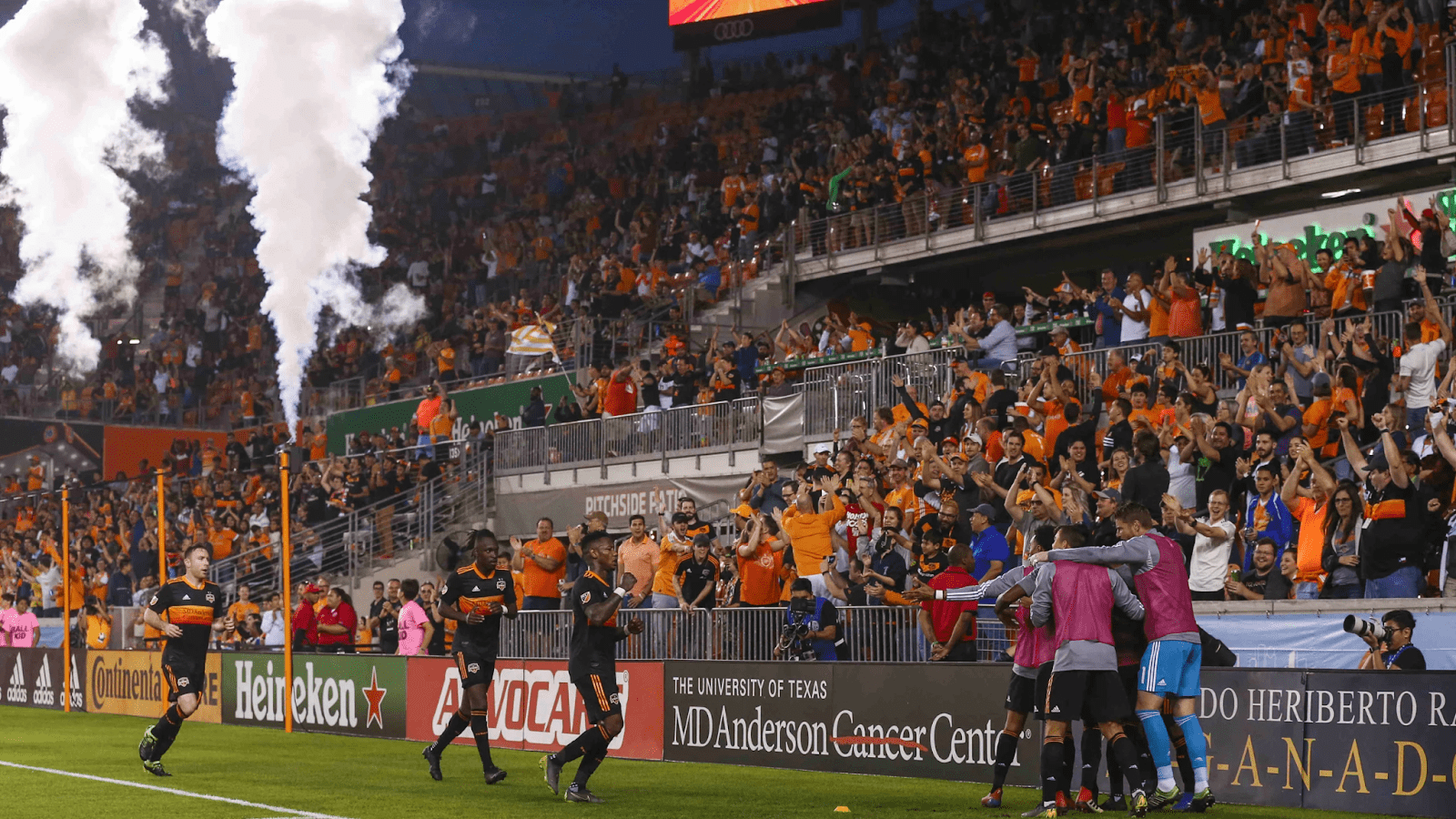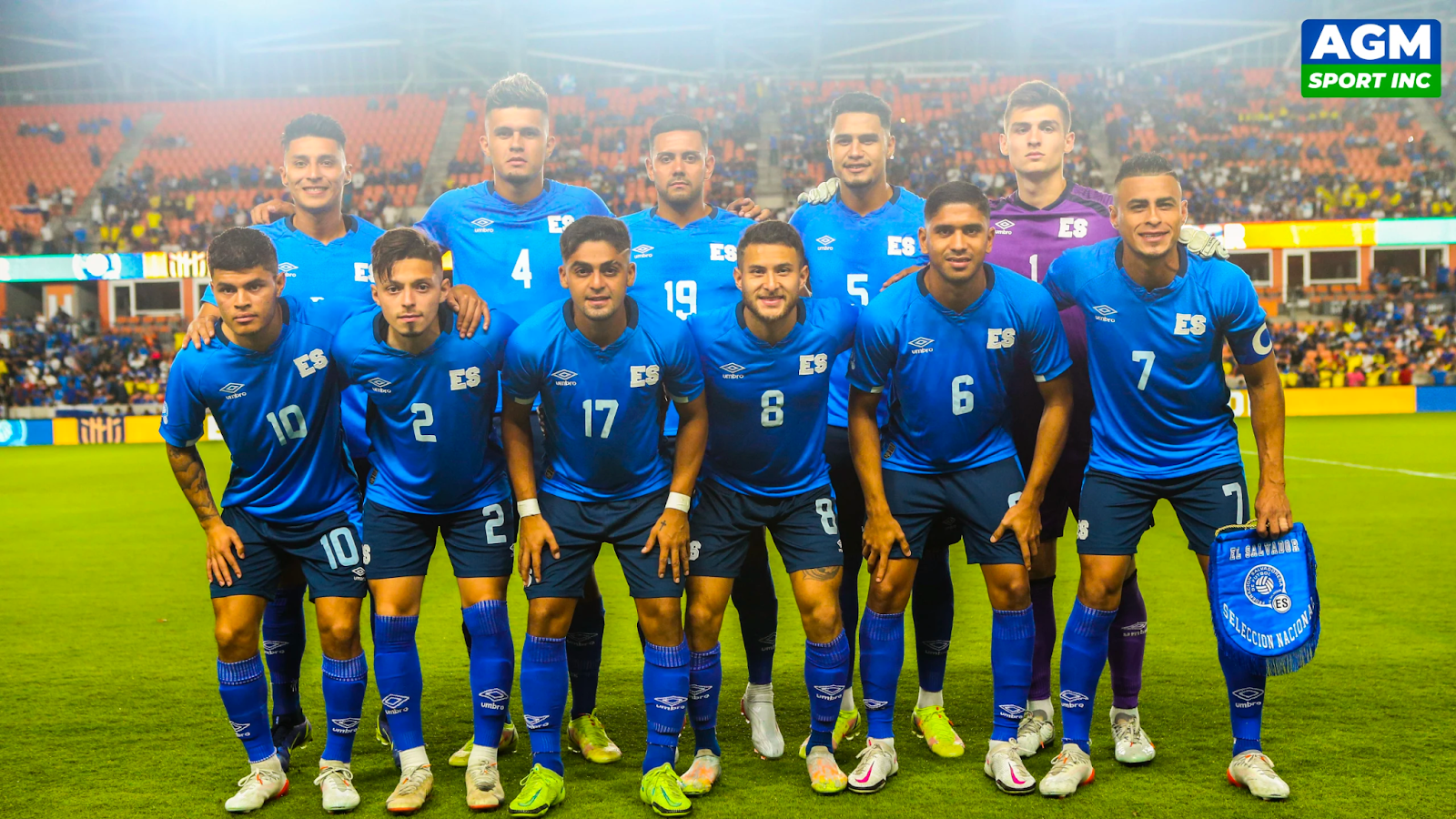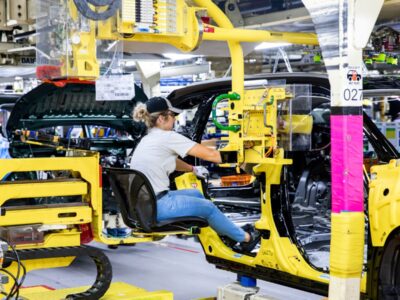No matter how the Houston Dynamo does during this soccer season, 2022 will be a memorable year for the team. In February, the Major League Soccer franchise announced a game-changing association making Shell Energy the exclusive energy provider of Houston Dynamo FC, the National Women’s Soccer League’s Houston Dash, and their home field, PNC Stadium.
Environmentally this multi-year agreement is significant because Shell Energy is pledging to make PNC Stadium a more sustainable sports venue by improving the HVAC system and installing LED lighting and EV charging stations. “Shell Energy is at the forefront of providing cleaner and more sustainable energy solutions,” asserted Houston Dynamo FC President John Walker in the agreement’s announcement. “And with the help of Shell Energy, we aim to be a leader in sustainability by reducing our carbon footprint by half over the next five years.”

Sharing Walker’s enthusiasm, Glenn Wright, Shell Energy’s Vice President of Renewables and Energy Solutions, stated:
“We’re excited about the opportunity to come together with Houston Dynamo FC to help them achieve their decarbonization goals while at the same time showcasing to fans what is possible when we work together.”
This deal also makes Shell Energy the presenting sponsor of both the Houston Dynamo and Houston Dash seasons (a “Powered by Shell Energy” sponsorship placement, for example, will be on the Dash’s jerseys), and the PNC Stadium’s new sports deck will be called the Shell Energy Sports Deck while its northwest gate will be the Shell Energy Gate.
This year also represents the tenth anniversary of the Dynamo’s stadium receiving a highly regarded Silver LEED (Leadership in Energy and Environmental Design) from the U.S. Green Building Council for its impressive achievements in new construction and sustainable design. Built to attain a LEED certification, the stadium stands as Houston’s first sports facility to receive LEED Silver certification for new construction.
The path to this sustainability success began in the planning stages. Hired as the architect was the acclaimed firm, Populous, which has been involved with over a dozen LEED-certified projects. “The stadium was designed and engineered to save thousands each year while engaging in sustainable, environmentally friendly construction and operation practices that will positively impact the team and the city for years to come,” explained Bruce Beahm, Associate Principal at Populous and the stadium’s project manager.
Among the many eco-minded choices made during the building phase was the emphasis on using products that would lower indoor air contaminants, resulting in healthier air for the construction crew and the facility’s occupants. Most of the construction materials were sourced, recovered, and manufactured within a 500-mile radius of the stadium. Nearly all wood-based building materials, however, came from FSC-certified forests. The builders diverted over 85% of the construction debris from landfills through their concerted effort.
To further its sustainability efforts after the stadium opened, the Dynamo partnered with GreenStar Recycling to ensure plenty of easily accessible recycling bins and storage areas. The two also teamed up to launch the “Building a Better Planet” program that promotes recycling at games and in the community. The team also focused on purchasing products with post-consumer and pre-consumer content to decrease landfill-bound waste and conserve natural resources.
To help lower carbon emissions, preferred parking spaces were reserved for low-emitting and fuel-efficient vehicles. The stadium cut around 20% from baseline energy use through measures like outfitting the stadium with an energy-efficient roof and placing aluminum panels around the stadium to improve airflow. Similarly, installing water-efficient fixtures reduced water usage by 41% compared to the baseline mark. This reduction also eased the local water supply and wastewater systems load.
In 2016, the venue (then called BBVA Compass Stadium – and simply BBVA Stadium from 2019-21 – before it was renamed following PNC’s purchase of BBVA) was honored by the Green Sports Alliance with an Environmental Innovator of the Year award for its ongoing accomplishments as a “green-friendly facility. “BBVA has embraced [green practices] at a level that others are trying to get to,” Green Sports Alliance Co-Founder and Executive Director Justin Zuelner told the Houston Business Journal in 2016. “BBVA, for a soccer facility, has done more than (most) in Major League Soccer.”

Spreading its environmental mission has been incorporated into the Houston soccer teams’ community outreach. Shell Energy is joining the Dynamo for the “Trees for Threes” campaign, where a tree will be planted for every Dynamo or Dash victory (wins earn the team three points in their league standings). The Free Kicks For Food program, co-sponsored by Dawn Dish Soap, provides free meals to local charities for each Dynamo free-kick. Corner Kicks for Kids is a program that helps feed food-insecure children in the Houston region.
Dynamo Charities support various projects involving youth enrichment, youth soccer, and cancer awareness and research.
In 2019, the Dynamo played the Mexico City-based pro soccer team, Club América, in the BBVA Classic, a benefit game where proceeds supported Houston’s Tejano Center for Community Concerns. The game proved so successful that a second BBVA Classic was scheduled. In January 2022, the Dash repurposed equipment and clothes by donating them to soccer programs in Nigeria, the home country of Dash forward Michelle Alozie.





